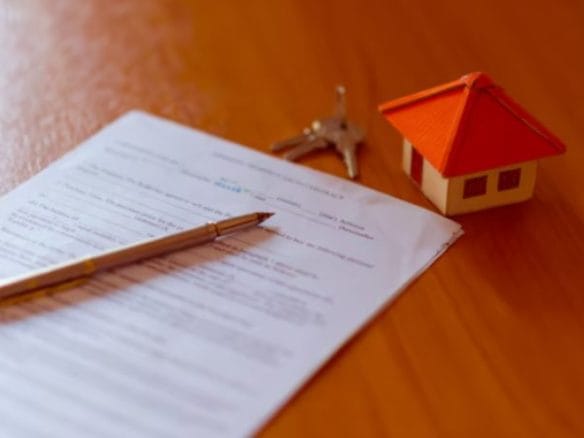Whether you’re a landlord looking to lease out your property or a tenant searching for a new place to live, understanding tenancy law in Nigeria is essential. The rental process in Nigeria often comes with disputes over rent, eviction, tenancy agreements, and maintenance responsibilities, all of which are governed by specific legal frameworks.
Tenancy law in Nigeria outlines the legal rights and obligations of both landlords and tenants, providing clarity on issues like rent payments, duration of tenancy, and legal procedures for eviction. Sadly, many Nigerians, both property owners and renters, enter into tenancy arrangements without proper knowledge of the law, leading to avoidable conflicts and court cases.
This article breaks down the key aspects of tenancy law in Nigeria in a simple and practical way. Whether you’re leasing a shop, renting a flat, or managing a block of apartments, you’ll discover everything you need to know to protect your interests and make informed decisions.
Also Check: Real Estate Investment in Nigeria: A Beginner’s Guide to Building Wealth
Who is Covered Under the Nigerian Tenancy Law?
Tenancy law in Nigeria applies to virtually all rental arrangements involving residential, commercial, or industrial properties, with a few exceptions. It defines the legal relationship between a landlord (lessor) and a tenant (lessee), ensuring both parties understand their roles and responsibilities.
Generally, the tenancy law covers:
- Private tenants renting houses, flats, or rooms for residential purposes.
- Commercial tenants renting shops, offices, or warehouses for business activities.
- Institutional tenants, such as organizations, religious bodies, or schools using rented property.
However, there are certain exceptions. For example, tenancy law in Nigeria may not apply in full to:
- Government-provided accommodations.
- Company-staff housing tied to employment contracts.
- Informal agreements without written documentation (though oral agreements may still hold weight in some cases).
It’s important to note that tenancy laws may vary slightly across states. For instance, Lagos State has its own Tenancy Law 2011, which provides a more detailed and tenant-friendly framework. Other states, however, may rely on older legislations like the Rent Control and Recovery of Premises Act or customary practices.
Whether you’re a tenant or landlord, knowing whether your arrangement is covered by the law is the first step in protecting your rights under the tenancy law in Nigeria.
Also Check: Top 10 Car Rental Services in Lagos (Affordable & Reliable Options)
Key Rights and Responsibilities of Tenants
Tenants in Nigeria are protected under the law, but they also have legal obligations to fulfill. Understanding these rights and responsibilities is crucial for avoiding conflict and staying within the boundaries of the tenancy law in Nigeria.
Tenant Rights Under Nigerian Tenancy Law:
- Right to Peaceful Enjoyment of Property
Once a tenancy agreement is in place, tenants have the right to occupy the premises without unnecessary interference from the landlord. - Right to a Written Agreement
Tenants are entitled to request a written tenancy agreement, which outlines the terms of rent, duration, obligations, and other legal clauses. - Right to Adequate Notice Before Eviction
Landlords must serve proper notice (usually 7–90 days depending on tenancy type) before initiating any eviction process, in line with the tenancy law in Nigeria. - Right to Property in Good Condition
Tenants have the right to a habitable and safe environment. Major structural repairs are generally the landlord’s responsibility. - Right to Seek Legal Redress
If a landlord violates any tenancy terms or engages in illegal eviction, tenants can take the matter to court or tenancy tribunals.
Tenant Responsibilities:
- Paying Rent Promptly
Tenants are required to pay rent as agreed — monthly, quarterly, or annually. Failure to do so may lead to legal eviction. - Proper Use of the Property
Tenants must use the premises as intended (residential, commercial, etc.) and avoid illegal or damaging activities. - Maintaining the Premises
While structural repairs are for the landlord, tenants must take care of day-to-day maintenance like cleaning, utilities, and minor fixes. - Respecting Terms of the Agreement
Any breach of the agreement — like subletting without permission or staying beyond the agreed term — may result in eviction or penalties.
By adhering to these responsibilities and knowing your rights, you can enjoy a smoother, conflict-free tenancy experience under the tenancy law in Nigeria.
Also Check: Best Car Rental Services in Abuja (Affordable & Reliable Options)
Landlord Rights and Legal Obligations in Nigeria
Just like tenants, landlords are also protected and guided by the tenancy law in Nigeria. Being a landlord doesn’t mean you can do as you wish; there are specific legal responsibilities you must uphold. At the same time, you’re entitled to certain rights that ensure your property is respected and your rent is paid as agreed.
Landlord Rights Under Nigerian Tenancy Law:
- Right to Receive Rent as Agreed
Landlords are entitled to full payment of rent at the agreed time, whether it’s monthly, quarterly, or annually. - Right to Recover Possession Lawfully
If a tenant breaches the agreement, refuses to pay rent, or overstays their term, the landlord can recover the premises through legal eviction processes — not self-help. - Right to Inspect the Property
Landlords have the right to enter the property for inspections, but with reasonable notice (typically 24–48 hours), except in emergency situations. - Right to Review Rent
In most cases, landlords can increase rent after giving proper notice, provided it’s within the legal limits and not arbitrary. In places like Lagos, rent increase rules are more strictly regulated.
Landlord Obligations:
- Provide a Written Tenancy Agreement
Landlords are legally expected to provide tenants with a clear and binding tenancy agreement. Oral agreements are legally valid but often difficult to enforce. - Maintain Structural Integrity of the Property
Landlords must ensure the property remains safe and livable, handling major repairs such as roofing, plumbing, and electrical issues. - Respect Tenant’s Right to Privacy
A landlord must not harass, threaten, or disturb the tenant’s peaceful use of the property. - Follow Due Process Before Eviction
Nigerian tenancy law strictly prohibits illegal eviction. Landlords must serve valid notice and obtain a court order before evicting a tenant.
By understanding and respecting their responsibilities, landlords can protect their property and maintain a lawful, peaceful relationship with their tenants, as laid out in the tenancy law in Nigeria.
Also Check: Top 10 Real Estate Companies in Lagos
What Makes a Tenancy Agreement Legal in Nigeria?
A tenancy agreement is the foundation of any rental relationship, and its legality is central to enforcing rights under the tenancy law in Nigeria. Whether written or oral, a valid tenancy agreement outlines the terms both parties must follow and provides legal protection if disputes arise.
Elements of a Legal Tenancy Agreement:
- Names of Both Parties
The agreement must clearly identify the landlord (lessor) and tenant (lessee) involved. - Description of the Property
A valid agreement must state the full address and description of the property being rented — flat, room, office space, shop, etc. - Rent Amount and Payment Terms
It must state the agreed rent amount, payment frequency (monthly, quarterly, yearly), and the mode of payment. - Duration of Tenancy
This includes whether the tenancy is fixed-term or periodic (e.g., month-to-month or year-to-year). - Notice Period for Termination
The agreement should clearly state how much notice each party must give before ending the tenancy, in line with the tenancy law in Nigeria. - Obligations of Both Parties
It must spell out responsibilities like who handles maintenance, utility bills, service charges, and repairs. - Security Deposit Clause (if applicable)
This section covers any refundable deposits, including conditions for refund. - Signatures and Witnesses
Both parties should sign the agreement in the presence of at least one or two witnesses. In some cases, landlords also involve legal practitioners or agents.
Common Mistakes That Can Invalidate a Tenancy Agreement:
- Using vague or unclear terms.
- Failing to state the duration or rent clearly.
- Not signing or witnessing the agreement.
- Including illegal or unenforceable clauses.
While oral agreements can be binding under Nigerian law, they are harder to prove in court. That’s why it is strongly recommended to use a written tenancy agreement to ensure full protection under the tenancy law in Nigeria.
Also Check: Top 20 Best Real Estate Companies in Abuja
Types of Tenancy Recognized Under Nigerian Law
The tenancy law in Nigeria recognizes different types of tenancy, each with specific legal implications for duration, notice periods, and termination procedures. Understanding the type of tenancy you’re involved in helps both landlords and tenants navigate their rights and obligations more effectively.
1. Fixed-Term Tenancy
This type of tenancy is for a specified period — for example, 1 year, 2 years, or 6 months, as agreed in the tenancy agreement.
- No additional notice is required at the end of the term, unless stated otherwise in the agreement.
- Common for residential and commercial leases.
2. Periodic Tenancy
A periodic tenancy is one that continues from period to period (e.g., monthly, quarterly, or yearly) without a definite end date.
- It automatically renews unless either party gives proper notice to terminate.
- The notice period must comply with the tenancy law in Nigeria (e.g., 1 week, 1 month, or 3 months depending on the rent cycle).
3. Tenancy at Will
This type of tenancy exists when a tenant occupies a property with the landlord’s permission but without a formal agreement or fixed duration.
- Either party can terminate the tenancy at any time by giving reasonable notice (usually 7 days).
- Common in informal arrangements or after a fixed-term lease has expired without renewal.
4. Statutory Tenancy
A statutory tenant is someone who remains in the property after their legal tenancy has ended, but is protected by law from forceful eviction.
- The landlord must obtain a court order to recover possession.
- This is common when a tenant refuses to vacate after their rent expires, but continues to stay without a new agreement.
Each type of tenancy has its own procedures for renewal, rent adjustment, and eviction, as governed by the tenancy law in Nigeria. It’s important to know which category you fall under so you can follow the right legal process in any situation.
Understanding Rent Control and Rent Increase Laws
Rent-related issues are among the most common causes of conflict between landlords and tenants. That’s why rent control and regulations around rent increases are important components of rental law in Nigeria. These laws help create balance, ensuring landlords get fair returns on their property while preventing tenants from being exploited.
Is Rent Control Active in Nigeria?
There is no universal rent control policy across all states. However, some states, like Lagos, have introduced laws to regulate excessive rent hikes, especially in low-income and densely populated areas. The Lagos Tenancy Law 2011, for instance, prohibits landlords from collecting more than one year’s rent in advance for residential properties.
Other states rely more on customary practices or the Recovery of Premises Act, and rent regulation is less formalized.
How Often Can a Landlord Increase Rent?
- In a fixed-term lease, rent cannot be increased until the term expires — unless the contract allows for mid-term adjustments.
- In periodic tenancies, landlords must provide reasonable notice before any rent increase — usually one rent cycle’s notice.
- Any increase must be reasonable and justifiable, based on factors like inflation, property upgrades, or market conditions.
Can a Tenant Refuse a Rent Increase?
Yes — if the increase is excessive or not properly communicated, a tenant can:
- Negotiate with the landlord.
- Seek mediation or legal redress.
- Vacate the property if the new terms are not acceptable.
Key Things to Keep in Mind:
- All rent agreements and increases should be documented in writing.
- Landlords cannot evict tenants simply for refusing a rent increase without following legal procedures.
- In cities with rent control regulations, any breach may attract fines or penalties.
Being informed about these rent-related rules can help both parties avoid costly legal disputes and maintain a peaceful tenancy relationship.
Also Check: Top 8 Real Estate Companies in Port Harcourt
Eviction Process in Nigeria: What the Law Says
Eviction is a sensitive issue, and one of the most misunderstood aspects of landlord-tenant relationships. In Nigeria, the law sets clear guidelines on how a tenant can be legally removed from a property. Skipping these procedures can lead to lawsuits or criminal charges for unlawful eviction.
When Can a Landlord Evict a Tenant?
A landlord can initiate eviction when:
- The tenant fails to pay rent.
- The tenancy has expired, and the tenant refuses to vacate.
- There’s a breach of agreement, such as illegal subletting or property misuse.
- The landlord needs the property back for personal use, redevelopment, or sale (depending on the terms of agreement).
Legal Eviction Process (Step-by-Step):
- Serve a Quit Notice
This is the formal notice to terminate the tenancy. The length of notice depends on the tenancy type:- Weekly tenant: 7 days
- Monthly tenant: 1 month
- Quarterly tenant: 3 months
- Yearly tenant: 6 months
- Serve a Notice of Owner’s Intention to Recover Possession
After the quit notice expires and the tenant hasn’t moved out, a second notice (usually 7 days) is served. - File a Court Action
If the tenant still refuses to leave, the landlord must file for recovery of premises in a magistrate or high court. - Obtain a Court Order for Eviction
The court will hear both sides and issue a judgment. If granted, the tenant will be legally ordered to vacate. - Use a Court Bailiff (Not Police or Thugs)
Only a court bailiff has the legal authority to enforce eviction — not the landlord, police, or hired individuals.
What Is Illegal Eviction?
Actions like changing locks, removing the tenant’s belongings, or forcefully ejecting someone without a court order are considered illegal and punishable under Nigerian law.
Even if the tenant owes rent, a landlord must follow due process. Tenants, on the other hand, should not wait until they are forced out. Once properly notified, they’re expected to vacate within the notice period or face legal consequences.
Frequently Asked Questions on Tenancy Law in Nigeria
1. What is Section 13 of the Recovery of Premises Act?
Section 13 of the Recovery of Premises Act outlines the legal process a landlord must follow to recover possession of a property from a tenant. It mandates that before taking any eviction steps, the landlord must serve the tenant a valid notice to quit, followed by a seven-day notice of owner’s intention to apply to court. This section reinforces that eviction must go through the court. Self-help or forceful eviction is illegal.
2. How many months notice to evict a tenant in Nigeria?
The length of notice depends on the type of tenancy:
- Weekly tenancy – 7 days’ notice
- Monthly tenancy – 1 month’s notice
- Quarterly tenancy – 3 months’ notice
- Yearly tenancy – 6 months’ notice
These notice periods apply unless the tenancy agreement states otherwise. After the notice expires, the landlord must still get a court order to proceed with eviction.
3. Can a landlord increase rent by 100 percent in Nigeria?
While there’s no federal limit on how much rent can be increased, a 100% jump is generally seen as unreasonable and exploitative. In some states like Lagos, such sharp increases can be challenged under fair rent practices or through tenancy tribunals. Rent increases must be communicated in writing and with proper notice (usually one rent cycle ahead). Tenants can negotiate or seek legal redress if the increase is excessive.
4. What is the Rent Control in Nigeria?
Rent control refers to government policies that regulate rent prices and prevent arbitrary increases. While Nigeria does not have a uniform national rent control law, some states (especially Lagos) have local laws that regulate rent collection and limit how much rent can be collected in advance (e.g., not more than one year’s rent for residential properties). Enforcement of rent control varies across states.
5. Can a landlord evict you without a court order in Nigeria?
No. It is illegal for a landlord to evict a tenant without a court order. Even if the tenant is owing rent or has overstayed their term, the landlord must follow the legal process:
- Serve a quit notice
- Serve a notice of intention to recover possession
- File a case in court
- Obtain a court order before removing the tenant
Forcefully locking out a tenant, removing their belongings, or threatening them without court approval is punishable under Nigerian law.
Tenancy Law in Nigeria: Final Thought
Understanding the tenancy law in Nigeria is essential for both landlords and tenants to avoid unnecessary disputes and costly legal battles. From rent agreements and eviction procedures to dispute resolution and rent control, the law provides a clear framework to guide rental relationships across the country.
For landlords, it’s important to respect the legal process when recovering possession or adjusting rent. For tenants, knowing your rights can protect you from unlawful eviction, excessive rent demands, or unfair treatment.
Whether you’re entering into a new lease, reviewing your current agreement, or dealing with a dispute, always refer to the relevant tenancy laws that apply in your state. And whenever possible, put agreements in writing and seek legal advice when needed.
By staying informed and acting within the boundaries of the tenancy law in Nigeria, both parties can enjoy a fair, respectful, and legally protected rental experience.





Join The Discussion